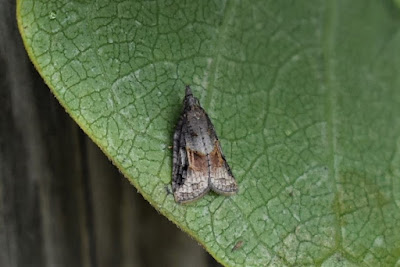So!
I
wrote an abbreviated letter blog this past weekend because I didn’t have enough
time to write everything I wanted to write.
As you know, there’s very little in my letter blogs that’s earth shattering. I could erase everything, wipe the slate clean, and start fresh next weekend and it wouldn’t change your life — or mine! — one bit. But, I like to write. I like to take pictures and tell you stories. Some of you like reading them, and some of you just like to look at the pictures. Some of you just don’t have time for all my jibber-jabber and that’s okay, too.
Once I finished the Steampunk Treasure Box and delivered it, we took a little trip around the big town of New Albany.
There’s an old train depot and feed store there.
More random road pictures.
Someone got solar panels.
I remember when
there was a house here. I probably have pictures of it somewhere. There’s still
a hand pump in the yard.
Jewelweed comes in two colors. This
orange and a yellow. The yellow one is a little larger flower.
Surprisingly, you can eat Jewelweed in moderation. The tiny seeds taste like walnuts and can be safely consumed, as can the flowers which look so pretty in a summer salad. They’re also good cooked and added to stir fry.
The
best-known use for Jewelweed is to break open a stem and rub the sap on poison
ivy and other itchy skin ailments like hives, bug bites, stinging nettle, and sunburn.
The sap has been shown to have anti-fungal properties and can be used to treat
athletes foot.
I
actually found two recipes that I don’t mind sharing with you. The first is an
easy way to make Jewelweed juice for future use. Simply puree jewelweed with
some water, strain, and freeze in ice cube trays. You can either thaw it or
lightly rub a frozen cube over itchy spots.
The
second one is for a bug spray. Collect as much jewelweed as you can crush and
squish into a quart sized jar. Fill the jar with about two cups of apple cider
vinegar. Leave it to infuse for about two weeks, giving it a shake once or
twice a day. Strain into a clean spray bottle and add 10-20 drops of each of
the following essential oils: lavender, peppermint, cedar, and rosemary. Shake
well before using.
Touches of red are starting to appear on the landscape.
A Silver-spotted Skipper. One of the most easily recognized of the skippers. These guys rests on the underside of a leaf. He’ll hang upside down, holding his wings together over his back so that his silver spot is exposed.
This is one species of moth that the male competes for territory to attract the females.
A Great Spangled Fritillary. He looks funny to me, like he’s missing half his body. I think it’s the way they sit with the abdomen up between the wings. I see other pictures online that look similar.
These guys will eat every single leaf
of the milkweed plant. This is a Milkweed Tussock Moth also called Tiger Moth
because they are in the tiger moth family. That and their colors are reminiscent
of a tiger’s coloration.
This guy came in for a visit when I was taking picture of the Tussock Moth caterpillars. He’s an Acleris Moth. There about 241 species of these guys.
Then this guy
flew in and landed nearby!
“What is it?” I know you wanna know — and I did, too!
Google Lens gave me all kinds of answers but when I double checked with photos online, I thought they were all wrong. I submitted the photo to the bug group on Facebook and was told it’s a Caddisfly. I Googled it and agree. I’ve been reading about these guys and they’re fascinating.
Caddisflies
live near lakes or rivers. Fish feed on the immature, aquatic stages and trout
take the flying adults. Caddisflies are often used as models for the artificial
flies used in fishing.
Up
to 800 eggs are laid in masses of a jelly that swells on contact with water. A
female may wash off a partially extruded egg mass by dipping her abdomen into
water during flight, or she may place the mass on stones in the water or on
aquatic plants just above the water. The young hatch within a few days and
depending on what kind of Caddisfly they are they can be herbivorous,
carnivorous, or omnivorous. After emerging from a cocoon, it swims to the
surface. Caddisflies live several weeks and usually mate on vegetation or rocks
surrounding water. Most adult Caddisflies are incapable of feeding on solids and
instead imbibe nectar from flowers. There’s generally one complete generation
per year.
More
than you wanted to know?
Speaking
of bugs...
I was tossing the ball onto the roof
for Raini to catch when Bondi, sitting on the patio, starts barking up a storm.
I thought I’d better check on her. I had to laugh when I see she was alerting
on a Wolly Bear caterpillar.
“How’s
Raini doing?” you ask.
In
the past two weeks I’ve only had to muzzle her one time and even then, it
wasn’t a bad fight. All I know is I heard a growl. When I got up to look, Raini
and Bondi were coming out from under the kitchen table and Raini was standing
over top of Bondi and had growled. I don’t know what offense Raini thinks Bondi
committed but I’m the disciplinarian in this house! I alpha rolled Raini and
put the muzzle on for a couple of hours.
They
do get to playing and chasing each other through the house and I sometimes have
to remind Raini not to bite Bondi’s hind legs. Bondi institutes these play
sessions as often or more than Raini does.
All
in all, I’d say Raini’s a good dog. I belong to a Blue Heeler group on Facebook
and the problems some of those people have with their dogs! Tearing things up,
hard to housebreak, messing in the house after being housebroken, growling and
nipping at members of the family. We don’t have any of that stuff with Raini.
Raini
is so smart, as most Heelers are. You can teach them something new in
practically no time at all. They want to please their owners and when they know
what you want, they do it.
At
night, before we go to bed, I sit on the edge of the bed and toss the ball for
Raini to jump and catch. I decided to see if I could teach her to go between my
legs, around, and when she comes out, I’d toss the ball for her to run and
catch.
I
put my hand down beside my right leg, wagged my index finger, and said, “Over
here.” I bet it didn’t take more than a couple of times of guiding her and she
had it! I think she even enjoyed the sprint for the tossed ball.
I
only have her do it two or three times a session.
After
a couple of weeks, I thought I’d see if I could get her to come around my left
leg. I put my left hand down beside my left leg, wagged my left index finger,
and said, “Over here.”
Raini
came between my legs and around the right one before I could stop her. “No.” I
didn’t toss the ball. I dropped my left hand down and repeated the command.
This time when she came through I blocked her and made her go left.
“Good
girl,” I said and tossed the ball.
It
was a little tougher teaching her to go around my left leg. She got frustrated
and laid down. I tossed her a reset ball and tried again. Then I didn’t try
anymore that night. I’d say after the third night, she had it.
Raini
is very receptive to hand commands as well as verbal. I don’t know what hand
signals trainers use. We just make up our own. Another one she knows is when
I’m done playing ball. I hold one or two hands out and wag them back and forth.
I don’t even have to say, “That’s enough,” but usually I do. She drops the ball
and goes for a drink of water. I started by using both my hands to indicate I
was done playing, then one day I was carrying something else through the yard
and stopped to toss the ball a few times. I only had one hand to signal but she
still understood.
Raini,
on the other hand, is training me, too!
Her
favorite thing is to have the ball tossed on the roof for her or bounced off
the side of the building. Sometimes I stand on the patio and toss it out into
the yard. She won’t play this game very long and I feel like when she quits
playing, I’ve met my obligation.
Raini
has discovered that if she drops the ball a little in front of me, I’ll take a
step to pick it up. Another drop and I’m another step out in the yard. I caught
on to what she was doing when I was part way down the walkway and she picked up
the ball and stopped right where I usually stand to toss the ball on the roof.
The look of expectation in her eyes made me laugh. I was only taking a break
from something else and couldn’t play. I gave her the signal and went in the
house.
>>>*<<<
There’s another reason I didn’t finish
my letter blog this past weekend. Besides going to the carnival, Mike and I took a
road trip.
I
sometimes talk about getting a small pull-behind camper trailer. Something we
can pull with an SUV. Nothing fancy or expensive. Just something to sleep in
and we can take our pets with us when we visit the kids and our old friend
Margaret in Missouri and our cousin Suzy in Kansas.
Mike had a truck camper so he was thinking that might be a good route for us to take. He’s been watching Facebook Marketplace and one came up. We went Saturday afternoon, cutting into my letter blogging time, and looked at it.
We were on roads we’ve never been on
and I took a ton of pictures. I picked out a few to show you.
We were on dirt roads that weren’t wide enough for cars to pass without getting off into the grass. I think our GPS took us the back way to this guy’s house. We were shocked when we came up over a little rise and see huge buildings.
“What
is that‽” I asked.
“I’m guessing something for the gas company. A compressor station maybe,” Mike said.
Getting closer there was a gas company sign in front of the place.
Our GPS took us right to this guy’s house. All I can say is you get what you pay for. I’m not sure this one’s for us.
I took more pictures on the way home. Things I missed or didn’t get a good shot of because they were on Mike’s side of the car.
These mailboxes made me laugh.
This house had a lot going on. There were flowers and yard art everywhere! Here are only a few of the pictures I took.
“Naked Ladies!” I exclaimed. I haven’t seen this flower since we left Missouri. Margaret had some near her house and told me what they were.
Let’s call this one done!



.JPG)
































No comments:
Post a Comment